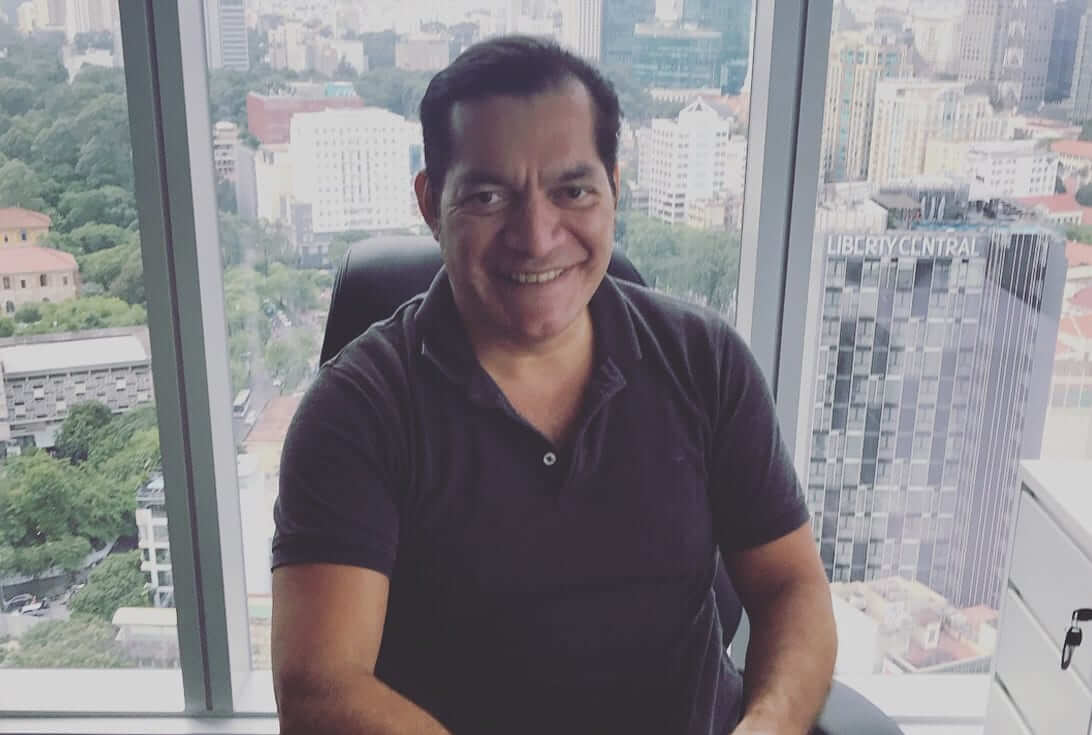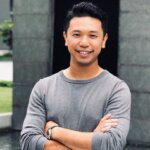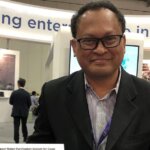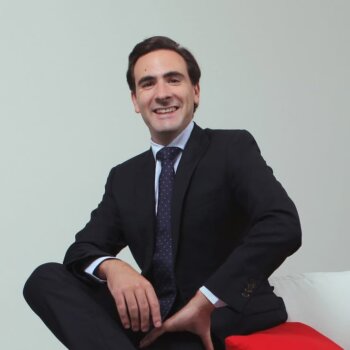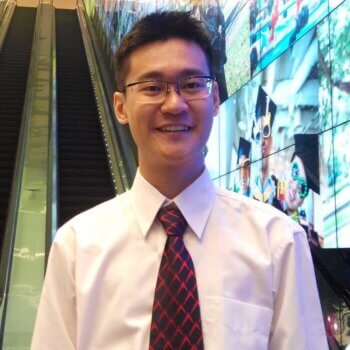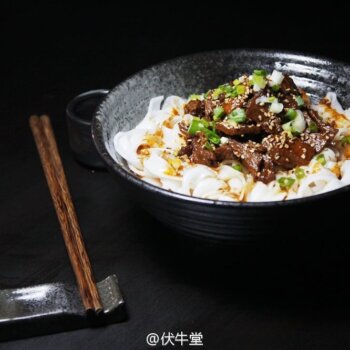Fascinated by Bitcoin technology, Mario Gomezlozada left the banking industry to start his own business.
What’s your story?
I was born and raised in El Salvador and moved to the United States for my education. I graduated with a master’s degree in computer science. Right after graduation, I moved to Tokyo and joined a financial services company. I was with that company for a year before I joined Merrill Lynch Japan. My last role with them was as their Chief Technology Officer for their fixed income business in Asia, overseeing Hong Kong, Singapore, China and India. After 11 years, I left Merrill Lynch and joined Credit Suisse in Tokyo. I was the Chief Information Officer for Japan, the Chief Technology Officer of Fixed Income Currencies and Commodities (FICC), as well as the head of the Singapore global development group for FICC. I was with them for three years.
Deep inside I knew I didn’t want to work in banking corporations forever. I felt like something was missing from my life, I wanted to do my own thing. I didn’t know what I was going to do until an acquaintance asked me, “You came from finance and technology, so why don’t you look into this thing called Bitcoin?” I started reading into it in depth and getting fascinated by the underlying technology. In 2013, the same acquaintance suggested I build an exchange. So I did, it was just me at that time. I didn’t have a job or a salary and Tokyo was a really expensive place to live, $3-4k for a tiny apartment.
I was contacted by someone in Vietnam for a job opportunity and I introduced him to this new project that I was working on. I had heard a lot of interesting things about Vietnam and I knew there were good developers there and that it was not as expensive to live in as Tokyo. I wanted money to last as long as possible. So from an employee perspective and for my own expenses, I moved.
My initial thinking was that I was going to come, train some people, interview and transfer my finance knowledge on how to build training systems, before going back home to Tokyo.
I knew Mike Kayamori (QUOINE CEO) from before, he was initially an investor but he actually started working with us quite closely on the business development side, even though he had a job. And that’s how we started QUOINE.
What excites you most about your industry?
Well, I came from finance and technology. Bitcoin technology itself fascinated me because of the power and the promise that it brings and what it can do for people in the future. We’re basically eliminating the middleman and allowing people to freely exchange money or value without a third-party. The technology has always been so exciting to me and I love being part of shaping the future of finance. I look forward to a free financial world where everybody can be a bank and you don’t have to ask permission from anybody else to send money.
What’s your connection to Asia?
While in the United States, I was recruited by a company in Japan and I said, “Sure, why not?” I had always been fascinated by Japan, the culture, country and technology — and I grew up with anime. I have since spent the most of my life living in Tokyo and I believe it’s the best city in Asia to live in.

Favourite city in Asia for business and why?
Tokyo, where we have our headquarters. Most of my life I’ve lived in Tokyo so maybe I’m biased towards that. But Tokyo is always my favourite city for anything. It’s the combination of culture and people.
What’s the best piece of advice you ever received?
Live every day as if it was the last day of your life. Seize every opportunity you get, work hard, and make sure you’re enjoying yourself. Take pride in your actions and never give up.
Who inspires you?
I look at different people. I read a lot about how the latest technologies were built. I have read a number of books on SpaceX, Tesla and what Elon Musk is doing for people. I take a lot of inspiration from people like that. Apple and Steve Jobs too. I just take bits and pieces from industry leaders and learn from what they did and how they changed the world and people’s lives.
What have you just learnt recently that blew you away?
Artificial intelligence developments that are happening right now. I do read a lot on AI daily. There are so many things happening today. I can’t even imagine what’s going to happen in the future. Not just AI but the marriage between AI and biology. Look at Boston Dynamics who are making humanoid robots that can do backflips. What comes next?
If you had your time again, what would you do differently?
I would start a company earlier.
How do you unwind?
I do High Intensity Interval Training (HIIT). I go through this hour of hell during lunchtime every day. Sometimes I don’t think I can survive it. I swim every morning a few kilometres. I do a lot of reading, mainly on tech, AI, biographies – I was reading the Amazon story lately. I read all those books.
Favourite Asian destination for relaxation? Why?
I haven’t taken a vacation for more than five years, but I really enjoyed Koh Samui for the beaches and food. I don’t get much time to travel for leisure.
Everyone in business should read this book:
Everyone should read the Elon Musk biography.
Shameless plug for your business:
www.liquid.com, www.quoine.com, www.quoinex.com, www.qryptos.com

How can people connect with you?
https://www.linkedin.com/in/mario-gomez-lozada-432a5416/
—
This interview is part of the ‘Callum Connect’ series of more than 500 interviews

Callum Laing is an entrepreneur and investor based in Singapore. He has previously started,
built and sold half a dozen businesses and is now a Partner at Unity-Group Private Equity and Co-Founder of The Marketing Group PLC. He is the author two best selling books ‘Progressive Partnerships’ and ‘Agglomerate’.
Connect with Callum here:
twitter.com/laingcallum
linkedin.com/in/callumlaing
Download free copies of his books here: www.callumlaing.com
